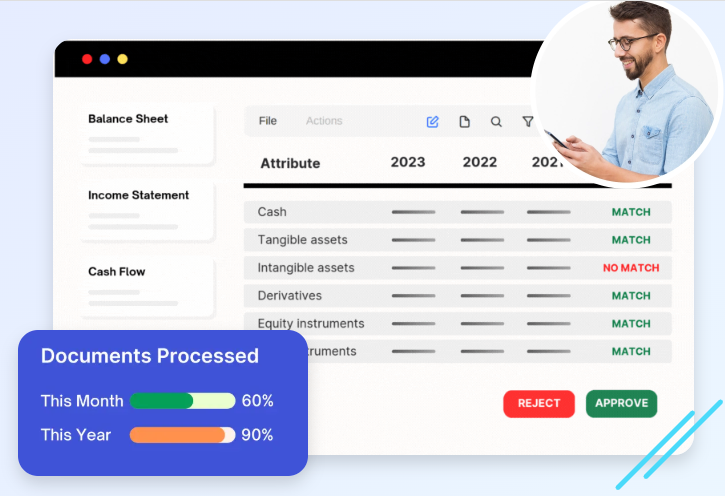Common Mistakes to Avoid When Applying for a Personal Loan
Whether you need money right now for a major purchase, home improvement, or an emergency, applying for a Personal Loan can be a great option. On the other hand, errors made throughout the procedure may result in increased expenses or maybe rejection. We will discuss the most common mistakes borrowers make while applying for a Personal Loan in this article and provide tips on how to prevent them.
Common Mistakes to Avoid When Applying For a Personal Loan
1. Not Checking Eligibility Criteria
One of the biggest mistakes when applying for a Personal Loan is not checking the eligibility criteria. Each lender has different requirements, and ignoring them could lead to unnecessary rejections. Before you proceed with a Personal Loan application, ensure you meet the following basic requirements-
– You must be an Indian citizen.
– Your age should be between 21 and 58 years.
– A steady income source is necessary, and proof of income is required.
– You need a good credit score, preferably 750 or above.
– Essential documents such as PAN card, bank statements, and ID proof are required.
2. Borrowing More Than You Need
It’s easy to be tempted by a higher loan amount, but borrowing more than you need is a big mistake. When you take out a bigger loan, your monthly EMIs increase, which might become a burden on your budget. If you cannot repay your loan on time, it will negatively impact your credit score, making it difficult to get loans in the future.
3. Choosing an Unnecessarily Long Tenure
Opting for a longer loan tenure might seem like a good idea because it reduces the EMI amount. However, a longer tenure means you end up paying more interest in the long run. This is a common mistake that many borrowers make when they apply for a Personal Loan.
It’s important to find the right balance when choosing a tenure. While shorter tenures may come with higher EMIs, they save you money on overall interest costs. The key is to choose a tenure that you can comfortably manage without stretching the repayment period too much.
4. Ignoring Your Credit Score
Your credit score is one of the most important factors that determine the approval of your Personal Loan application. Lenders view a high credit score as a sign of responsible financial behavior. On the other hand, a low score can lead to higher interest rates or rejection.
Always check your credit score before applying for a Personal Loan. If your credit score is low, consider improving it by clearing existing debts or credit card dues on time. A score above 750 increases your chances of getting a loan approved at favorable interest rates.
5. Not Reading the Loan Terms
Not paying attention to the terms and conditions of a loan agreement is a mistake that can cost you later. Many borrowers skip reading the fine print, which contains crucial information about interest rates, hidden charges, penalties, and more.
Take the time to carefully read the loan agreement before you sign it. Understand the fees, repayment schedule, penalties for prepayment or delayed payments, and any other conditions. If you are unsure about anything, ask your lender to clarify it. This step can save you from any unexpected surprises later.
6. Overlooking Debt Consolidation Options
If you have multiple debts, using a Personal Loan to consolidate them could make repayment easier. However, many borrowers fail to consider debt consolidation, which is one of the mistakes that can lead to missed opportunities for simplifying finances and saving money.
Debt consolidation helps you combine several debts into one, often with a lower interest rate. Before choosing a lender, compare different options to get the best deal on interest rates and repayment terms. Debt consolidation can help you keep track of your payments and avoid high interest rates.
7. Ignoring Payment Penalties
Many borrowers make the mistake of overlooking penalties for early loan repayment. Some lenders charge prepayment penalties if you decide to pay off your loan before the end of the tenure.
If you think you might be able to pay off the loan early, make sure to review the loan terms for any penalties. Understand how much it could cost you to pay off the loan ahead of schedule, and decide if it’s worth it. Being aware of these penalties can help you avoid extra costs and make informed decisions.
8. Failing to Compare Lenders
Another common mistake is applying with the first lender you come across without comparing the interest rates and terms from multiple lenders. Different lenders offer different rates, and failing to compare them could cost you more in interest.
Take some time to research and compare interest rates from banks, credit unions, and online lenders. Even a small difference in interest rates can have a significant impact on how much you end up paying over the loan tenure. Being patient and thorough can save you money.
9. Applying for Multiple Loans at the Same Time
Some people think that applying for multiple loans increases their chances of approval. However, applying for multiple Personal Loans simultaneously can hurt your credit score and lead to rejection. Each time you apply, lenders conduct a hard inquiry, which can lower your credit score.
To avoid this mistake, apply for a Personal Loan only after doing thorough research and choosing a lender that meets your requirements.
Conclusion
Applying for a Personal Loan is a great way to manage your financial needs, but making mistakes during the process can lead to higher costs and frustration. By understanding and avoiding these common mistakes, such as not checking eligibility, borrowing too much, ignoring the fine print, and neglecting your credit score, you can make informed decisions that save you money and stress.














Post Comment